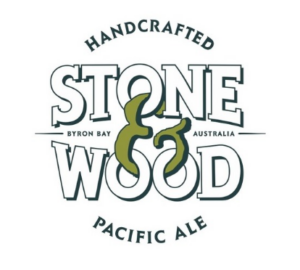 Author: Zeinab Farhat, Progressive Legal
Author: Zeinab Farhat, Progressive Legal

Unjustified Threats of Trade Mark Infringement – s 129 Trade Marks Act

If you are the owner of a registered trade mark and consider another parties actions to be a breach of your rights in relation to that mark, it is important to be mindful of s129 of the Trade Marks Act 1995 (Cth) (“the Act”) which provides grounds for an aggrieved party to commence proceedings against a person who is making unjustified threats of trade mark infringement proceedings.
This article will consider:
- what is s129 of the Act?;
- can a plaintiff that relies on s129 claim damages?;
- when won’t the Court find in favour of the plaintiff?;
- what if a defendant believes they have a legitimate claim for infringement?;
- case law example; and
- key takeaways.
What is s 129 of the Act?
Section 129 of the Act provides that:
(1) If a person threatens to bring an action against another person (threatened person) on the ground that the threatened person has infringed:
(a) a registered trade mark; or
(b) a trade mark alleged by the person to be registered;
any person aggrieved by the threat (plaintiff) may bring an action (either in a prescribed court or in any other court having jurisdiction) against the person making the threat (defendant).
(2) The purpose of the action is to obtain from the court:
(a) a declaration that the threat is unjustified; and
(b) an injunction restraining the defendant from continuing to make the threat.
Essentially, in order for a person to rely on s 129 where a threat has been made against them, they must prove:
- that a threat of legal action was made;
- there is a registered trade mark, or, there is an allegedly registered trade mark; and
- the threat was unjustified.
Section 129(2) provides that if a Plaintiff is successful, the Plaintiff would be able to obtain a declaration from the Court that the threat is unjustified, as well as an injunction preventing the Defendant from continuing to make the threat. The Plaintiff is also able to bring an action against a party regardless of whether the Defendant is the registered owner of the trade mark or an authorised user (s 129(3)).
Can a Plaintiff relying on s 129 claim damages?
Section 129(2) provides that the Plaintiff can recover damages where there has been loss sustained as a result of the Defendant’s conduct. Additional damages may be granted pursuant to s 129(2)(2A) subject to the Courts consideration of any relevant matters (s 129(2)(2A)(e)), or the matters outlined in s 129A(2)(a)(d) such as the flagrancy of the threat.
When won’t the Court find in favour of the Plaintiff?
The Court will not find in favor of the Plaintiff if the Defendant can show that the trade mark is registered, and the acts of the threatened person in respect of which the Defendant threatened to bring an action for actually constitute an infringement of the trade mark (s 129(4)(a)(b)).
What if a Defendant believes they have a legitimate claim for infringement?
If a Defendant to a s 129 claim is entitled to bring an action against the Plaintiff for the infringement of the registered mark, then the Defendant can file a counter claim against the Plaintiff for any relief to which the Defendant would be entitled for in the infringement action (s 130).
Case Law example
Stone & Wood Group Pty Ltd v Intellectual Property Development Corporation Pty Ltd [2016] FCA 820
This case concerned claims brought by Stone and Wood Group (“Stone”) regarding Elixir Signature Pty Ltd’s (“Elixir”) Thunder Road ‘Pacific Ale’. Stone alleged misleading and deceptive conduct, passing off and trade mark infringement.
In summary, Stone brewed and sold their ‘Pacific Ale’ beer from 2010. Elixir was based in Victoria and launched a ‘Pacific Ale’ beer in 2015. This was later renamed after receiving a letter from Stone threatening legal action. Among other things, Stone argued that Thunder had infringed its following registered mark by selling ‘Pacific Ale’ beer:

Ultimately, the Court dismissed Stone’s claims, holding that Elixir had not infringed Stone’s registered Mark because the use of the words ‘Pacific Ale’ and ‘Pacific’ were not deceptively similar to Stone’s registered mark which had the dominant feature of ‘Stone and Wood’.
The Court also upheld Elixir’s counterclaim for unjustified threats as Stone had failed to prove that s129(4) or s129(5) applied. Specifically, it had not established that the acts of Elixir constituted an infringement of the registered mark, or that with due diligence it pursued an action against Elixir for infringement of its mark.
It is important to note that since this decision, 129(5) has been repealed. Therefore, registered owners or authorised users of trade marks cannot use “due diligence” as a Defence to s129 proceedings. Section 129(5) still applies to actions for infringement that took place before 24 February 2019.
This decision was subsequently appealed in 2018 by Stone (see Stone & Wood Group Pty Ltd v Intellectual Property Development Corporation Pty Ltd [2018] FCAFC 29). However, the appeal was dismissed by the Full Federal Court.
Key takeaways
If you are a registered trade mark owner who suspects that another party is infringing on your rights, it is best to obtain legal advice from a trade mark lawyer who can advise you on whether you have a valid infringement action or not.
It is important to not make threats against another party without having done so as you may expose yourself to liability for unjustified threats under s 129 of the Trade Marks Act 1995 (Cth).
Need Trade Mark Help?
Please get in touch with us today via phone or the contact form on this page.


